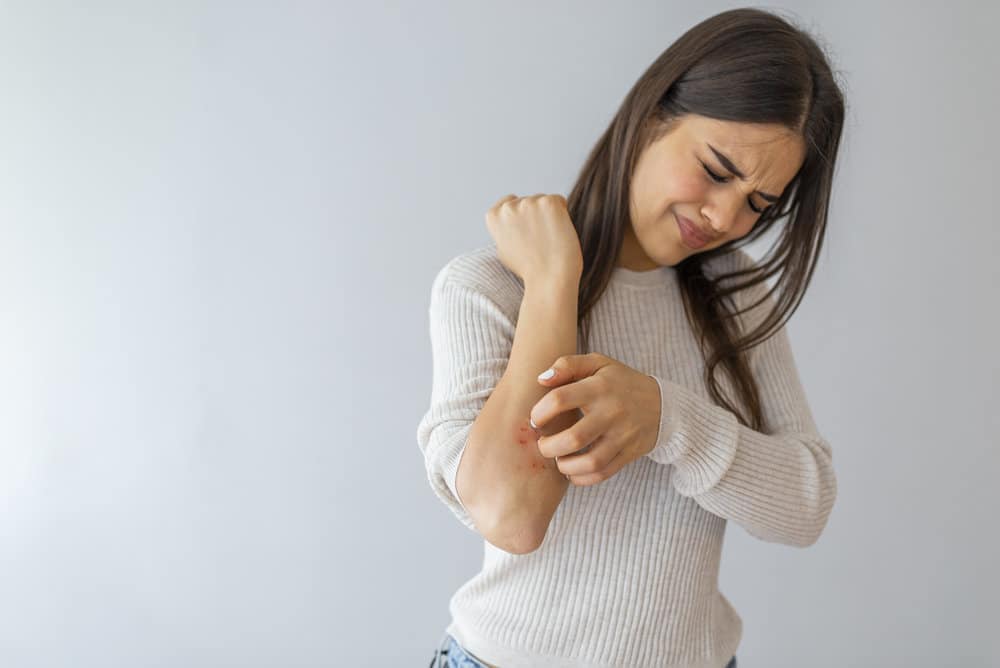Kim Kardashian’s candid reveal about her psoriasis has sparked a wave of interest and empathy towards those dealing with this stubborn skin condition.
Dr Roger Henderson, a seasoned GP with a knack for demystifying medical jargon, gives us the lowdown on psoriasis, including what triggers it and how best to soothe the flare-ups.
Psoriasis happens when your skin goes into overdrive, churning out cells at a breakneck speed.
Normally, it takes about three to four weeks for skin cells to renew themselves, but with psoriasis, this cycle shortens to a mere three to seven days. The result? Patches of skin build up into the classic thick, scaly patches that psoriasis is infamous for.
These patches are typically silver and raised, edged with red, appearing mostly on elbows, knees, and the scalp. While they don’t leave scars, they can make the skin a bit of a patchwork of colours for a while.
This pesky condition comes in several varieties: from the common plaque psoriasis to the guttate type that pops up after bacterial infections, and even the severe erythrodermic psoriasis that turns your skin into a red, peeling canvas.
And despite the myths, let’s set the record straight—psoriasis isn’t something you can catch from someone else. It’s thought to be an autoimmune snafu, with both genetic and environmental elements at play.
Anyone can get psoriasis, and it doesn’t play favourites with gender or age, though it’s most likely to first appear in adults under 35.
Certain lifestyle choices can trigger or worsen symptoms, like lighting up a cigarette, hitting the bottle hard, experiencing hormonal tornadoes, or packing on extra pounds. Cold snaps and stress can also make things worse.
To keep stress at bay, consider embracing chill-out tactics like yoga, meditation, or whatever helps you decompress. Regular exercise and picking up a creative hobby like painting could also do wonders.
Sunshine is another ally in the fight against psoriasis. Those UVB rays in natural sunlight are natural warriors, slowing down the fast-forward on your skin cells.
And although we’ve got no cure-all for psoriasis yet, a solid skincare routine can be a game changer. Regular slathering of a good emollient can keep your skin from turning into the Sahara, reducing itchiness and flaking.
A go-to product like Diomed Dry Skin Emollient can be a skin saver—just pop into any pharmacy and give it a whirl.
While the road to managing psoriasis can be bumpy, getting savvy about what sets it off and how to handle it can make a huge difference.
If you’re navigating this or similar skin grievances, check out resources like Diomed’s website for more in-depth advice from people who get it.
